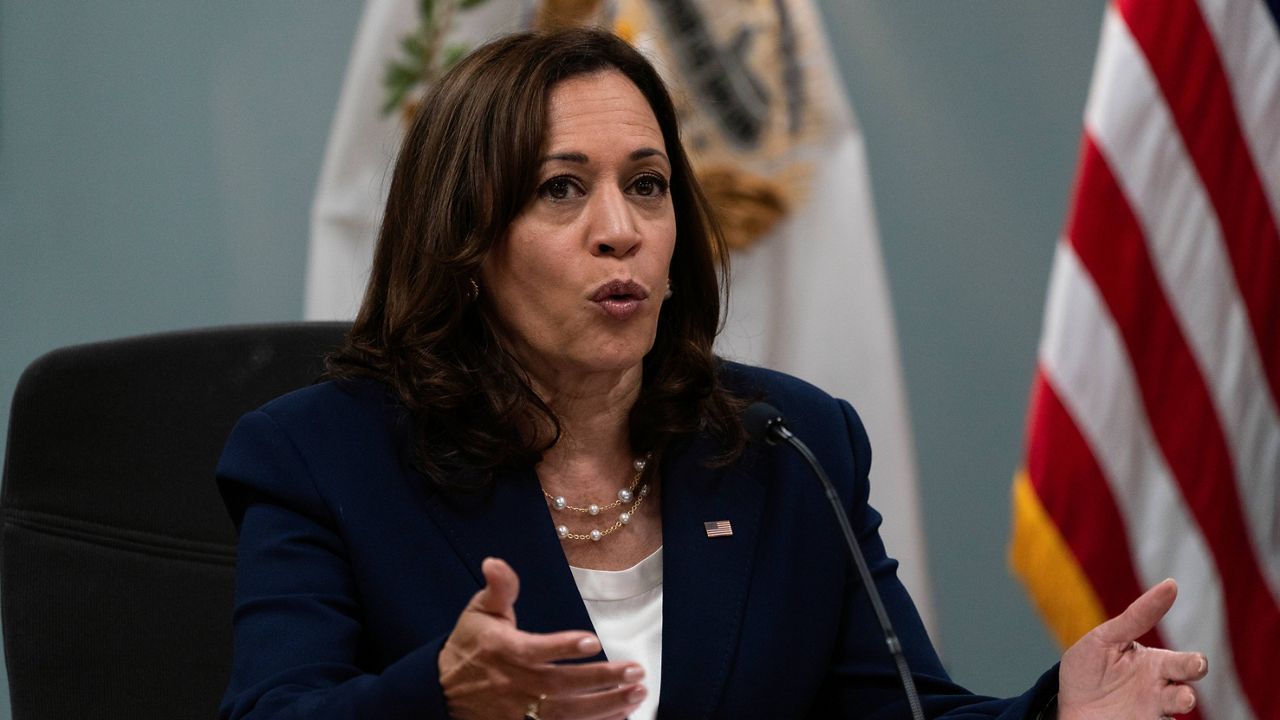Vice President Kamala Harris made a trio of announcements Tuesday aimed at addressing the root causes of migration from northern Central America to the United States.
What You Need To Know
- Vice President Kamala Harris made a trio of announcements Tuesday aimed at addressing the root causes of migration from northern Central America to the United States
- Harris announced her call to action has secured more than $1.9 billion in new private sector commitments to create economic opportunity in northern Central America, bringing the total pledged so far to $3.2 billion
- Harris also announced the creation of the Central American Service Corps, a $50 million initiative funded by public, private and philanthropic partners to provide young people in El Salvador, Guatemala and Honduras with paid community service opportunities, mentorship and a path to future employment
- The vice president also said Mastercard, Microsoft and PepsiCo are among the companies and organizations that have committed to investing in a separate program that strives to improve women’s access to quality jobs and their chances for career growth
President Joe Biden assigned Harris that task last year. Believing that adequately tackling the problem would require more resources than the federal government alone could provide, Harris issued a call to action in May 2021 for businesses and social enterprises to invest in promoting economic opportunity for people in El Salvador, Guatemala and Honduras.
Those countries face significant problems with poverty, gang violence, government corruption and natural disasters, prompting many to flee in search of a better life in the U.S. Meanwhile, Customs and Border Protection reported 234,000 encounters with migrants at the Southwest border in April, the highest total in 22 years. This year alone there have been nearly 1.3 million border encounters.
The White House issued news releases Tuesday morning about Harris’ three announcements. The vice president will discuss them in more detail in the afternoon, when she is scheduled to host a roundtable with business executives in Los Angeles, where she and Biden are attending the Summit of the Americas this week.
Harris announced her call to action has secured more than $1.9 billion in new private sector commitments to create economic opportunity in northern Central America, bringing the total pledged so far to $3.2 billion.
“Taken together, these investments are creating an ecosystem of opportunity and helping to provide hope for people in the region to build safe and prosperous lives at home,” a White House fact sheet said.
Among the latest 10 companies donating millions of dollars are Gap Inc. and Visa.
Harris also announced the creation of the Central American Service Corps, a $50 million initiative funded by public, private and philanthropic partners to provide young people in El Salvador, Guatemala and Honduras with paid community service opportunities, mentorship and a path to future employment.
“Young people are looking for meaningful opportunities to build their futures and CASC is aimed at addressing the range of challenges youth face in the region,” the White House said. “By supporting life and job skills, offering hope, and building confidence and a sense of belonging for youth, the CASC initiative will generate leadership potential and help foster optimism among youth in Central America that a better future is possible for themselves and for their communities.”
Service corps members will work in their own communities on priorities such as educational support, climate action, food security, health education, violence prevention and more.
The vice president also said Mastercard, Microsoft and PepsiCo are among the companies and organizations that have committed to investing in a separate program that strives to improve women’s access to quality jobs and their chances for career growth. It will connect them with the financial system and digital economy, training them in core job skills and promoting gender parity, the White House said.
The program, called In Her Hands, focuses on the Western Hemisphere as a whole, but it aims to address gender-based violence in northern Central America.



